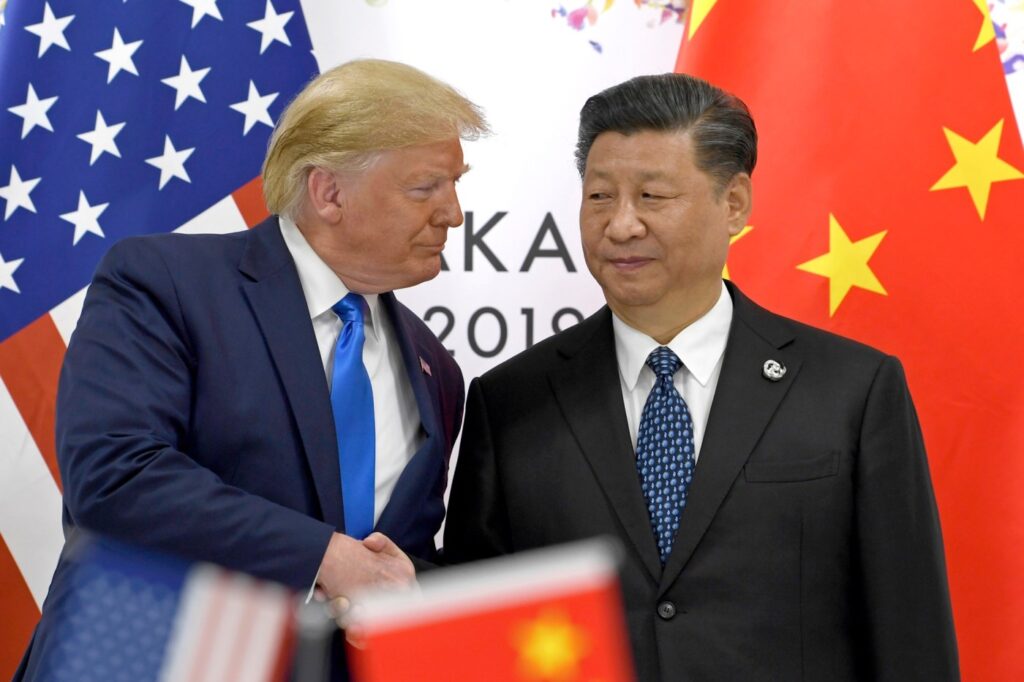
Tariffs have become a huge issue in the presidential campaign. Last week, former President Trump recounted a phone conversation he had with French President Macron in 2019. France had just passed a digital tax—imposed on those companies (mostly American like Amazon) that sold to customers in France through the internet. As President Trump told it, he called President Macron to say that in retaliation, he, President Trump, would impose a 100% tariff on imported French wines—and Macron immediately backed down.
When Russia invaded Ukraine, President Biden asked Congress for authority to impose a tariff on all goods imported from Russia. Congress overwhelmingly approved granting Biden that power; he used it, and Russian imports dropped 50% in a single year.
Tariffs certainly can work as a valuable threat in nations’ bilateral negotiations, though it was improbable that the threat of selling less caviar to Americans would dampen Putin’s expansionary designs on Ukraine. (The loss of sales by French wine exporters caused by a doubling of the price of each bottle, however, was politically insufferable to Macron.)
Nevertheless, each instance broke America’s promises under the World Trade Organization (“WTO”) treaty. The U.S., France, and Russia are all members of the WTO. As a member, America has agreed not to increase tariffs on another WTO member except in specific narrow circumstances, none of which applied. The one that came closest allows a tariff when imports challenge the survival of an industry important to American national security. However, punishing Russia, not protecting a domestic industry vital for America’s security, was clearly the purpose of Biden’s action.
Is it ever permissible for America knowingly to break its international trade agreements? If so, should Congress or the president make the decision?
The whole idea of the WTO was to take away the tactic of threatening tariffs that could lead to trade wars. Trade wars do the greatest damage to a country that is targeted and does not retaliate. They do the next most damage to both countries who participate in imposing ever-higher tariffs on each other. They do least damage when they are constrained to a proportionate response, after a hearing before a WTO panel. President Trump, and President Biden, however, each felt he had to act quickly, to forestall a trade war (precipitated by the threatened French digital tax) or to stop a real war from continuing (Ukraine).
France could appeal Trump’s wine tariff to the WTO, and would likely eventually win, but Trump knew the pressure Macron would feel in the interim. So he ignored the WTO. Biden probably didn’t care if Russia chose to appeal to the WTO. Such a hearing on the world stage would allow the US to present evidence of how Russia’s massive human rights violations constituted a threat to our own national security. We might eventually lose that argument to Russia, but Putin had no percentage in raising it.
Related Articles
Susan Shelley: Democrats are back to crying ‘Hitler’
Larry Wilson: A storm brews from Mar-a-Lago
The future of California depends on handing Proposition 5 the defeat it so richly deserves
Despite naysayers, new cities provide boundless possibilities
Don’t let the immigration issue spoil your good heart
The second question focuses on the fact that Biden had Congress behind him and, while Trump might have, he didn’t ask. The US Constitution unambiguously gives Congress the authority to “lay and collect Taxes, Duties, Imposts and Excises.” In the case of a declared emergency, Congress has given the president the right to block imports entirely, but Congress has not conceded its general tariff power to the president. However, a threat by Trump to block the importation of all French wine in order to help Amazon would not have been credible (American oenophiles would have risen in revolt); but doubling the price of a bottle of French wine might actually have won Trump votes (at least in Temecula), while making French wine even more of a luxury. Still, he should have asked for Congress’ approval.
All nations sometimes break commitments they make to other nations. America should do so sparingly and constitutionally, in order to preserve the credibility of our word and encourage resort to international dispute resolution.
Tom Campbell is a professor of law and of economics at Chapman University. He has taught international trade law at Stanford Law School, where he was a tenured professor. He served in the US Congress for five terms, including on the international relations, joint economic, and judiciary committees.
